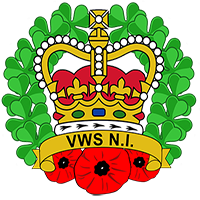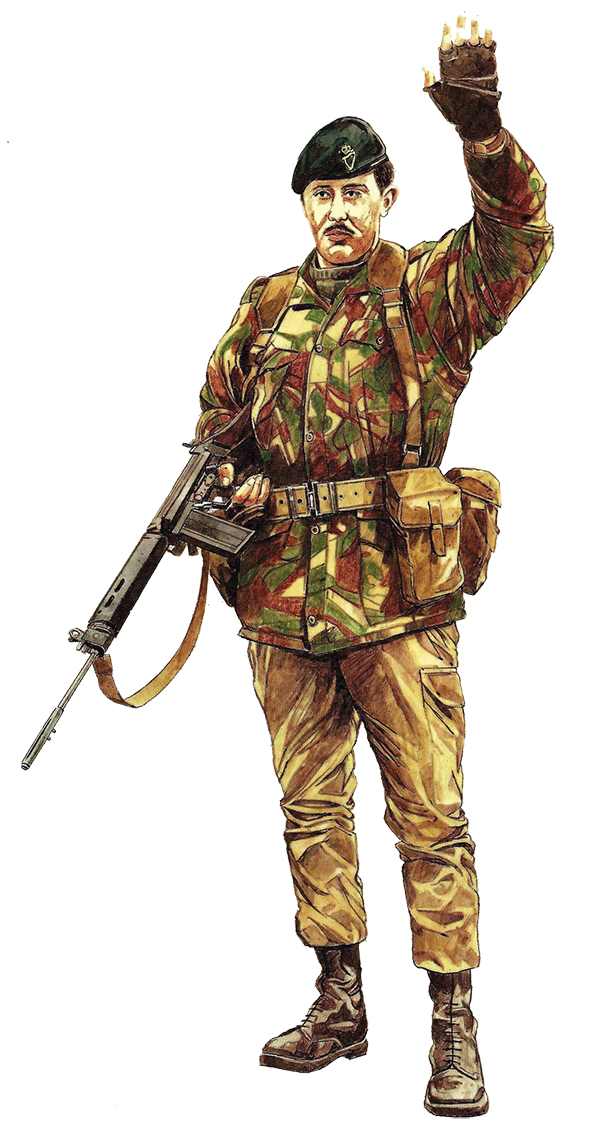The Ulster Defence Regiment (UDR) existed between 1970 and 1992 as a locally recruited Army Regiment providing direct military support to the police in Northern Ireland during Op BANNER, colloquially known as The Troubles. It was the largest infantry unit with eleven battalions at its peak. Initially mostly a part-time force, its numbers grew and the proportion of full-time soldiers gradually exceeded that of part-time, although both worked side by side as complete sub-units. Full-Time soldiers (known as Permanent Cadre) served on full career terms and conditions of service and contributed to a Service pension. Part-Time soldiers served on gratuity-earning terms and conditions and, assuming they met the requirements for a Certificate of Efficiency each year, were paid an annual tax-free bounty instead. Female soldiers (known as Greenfinches) served in both Full Time and Part-time capacities.
As part of broader Army re-structuring, the UDR amalgamated with The Royal Irish Rangers in 1992 to form the new Royal Irish Regiment (R IRISH) which then consisted of General Service (GS) Battalions (conventional infantry), Home Service (HS) Battalions (serving only in Northern Ireland as part of Op BANNER and specialising in Counter-Terrorist/Counter-Insurgency roles) and Territorial Battalions, Reservists still known as RANGERS to differentiate them from other categories. The Home Service still consisted of both Full Time and Part Time regular soldiers, who were designated HSFT and HSPT accordingly.
Only Full-Time soldiers of all categories contributed to an occupational pension-earning scheme which was payable after certain milestones had been reached or otherwise preserved until age 60. (Some Full Time (Con Rate) soldiers in the early UDR years until 1975 did not join such a pension scheme.) All categories of soldiers are, however, eligible to apply for compensation for injuries (physical and mental) attributed to or aggravated by their service. Prior to 2005, the scheme is known as War Disablement Pension (WDP). After 2005 it is the Armed Forces Compensation Scheme (AFCS).

